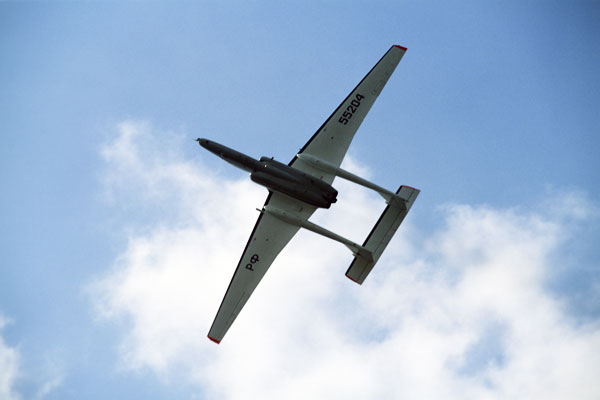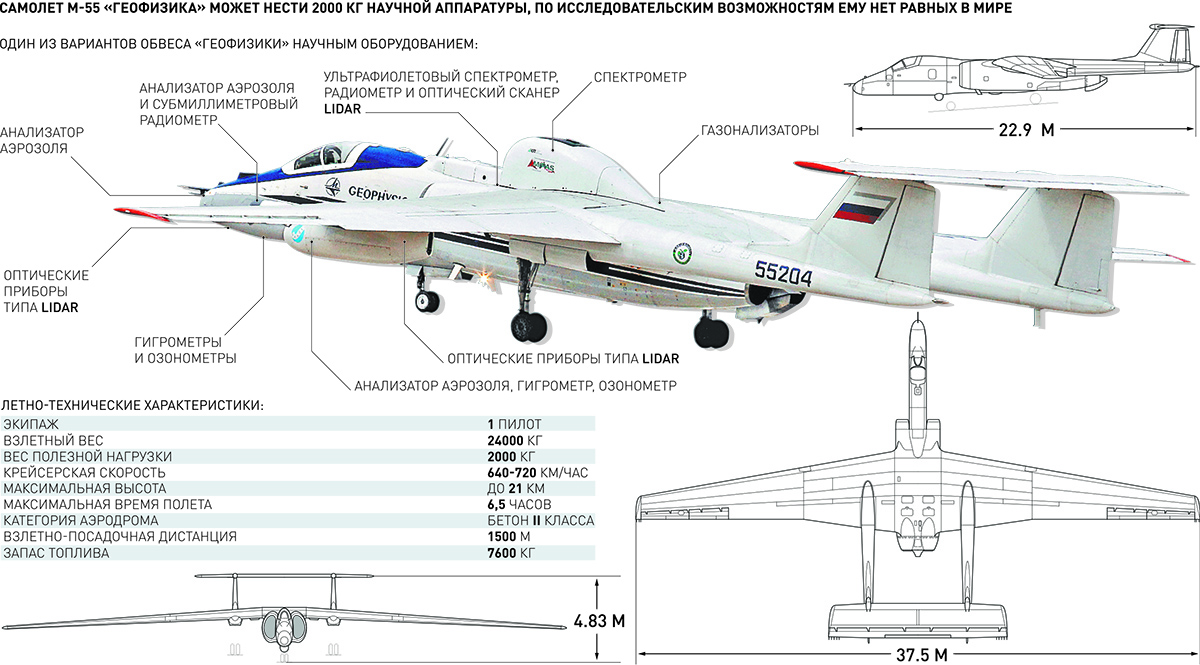Russian high-altitude reconnaissance aircraft M-55 Geophysics will collect climate data for 26 European research institutes
The Russian M-55 Geophysics aircraft will be used in the framework of the StratoClim project in 2016, reports Russia Beyond The Headlines . Scientists from 26 European research institutes will, on the basis of the data collected by the aircraft, create a model of the Earth’s atmosphere and predict climate change for decades to come. The cooperation agreement was signed by OKB im. V. M. Myasishcheva and the Institute of Polar and Marine Research. Alfred Wegener.
The M-55 can fly for a long time at an altitude of more than 20 kilometers and carry onboard scientific equipment weighing up to 2 tons.

Photo: Vladimir Fedorenko / RIA News

In the experimental design bureau of V. M. Myasishchev in the 1960s, they began to develop an aircraft capable of intercepting American reconnaissance balloons. The second flight model, the M-17 Stratosphere, took to the air in 1982, and in the 1990s it set many records for speed and rate of climb for airplanes weighing from 16 to 20 tons equipped with one turbojet engine. The need to intercept balloons by that time was gone, and the project was developed as the high-altitude subsonic reconnaissance M-55 Geophysics.
')
The aircraft became popular in science. Since 1996, the M-55 in the framework of the international "Aviation Polar Experiment" explores the state of the planet's ozone layer.
Crew: 1 person
Take-off weight: 24,500 kg
Payload: 2000 kg
Takeoff takeoff: 2x5000 kgf
Practical ceiling: 20.5 km
Cruising speed: 750 km / h
Wing Span: 37.5 m
Wing area: 131.6 m2
Length of aircraft: 22,868 m
StratoClim is a joint project of European research institutes to study processes in the stratosphere and upper troposphere, the state of the ozone layer and predict climate change.
In the expedition to India in 2016, the M-55 Geophysics will take thirty scientific instruments weighing from 12 to 398 kilograms. The equipment includes lidars for detecting polar stratospheric clouds, spectrometers and other meteorological equipment.

"Russian newspaper"
The M-55 can fly for a long time at an altitude of more than 20 kilometers and carry onboard scientific equipment weighing up to 2 tons.

Photo: Vladimir Fedorenko / RIA News

Aircraft history
In the experimental design bureau of V. M. Myasishchev in the 1960s, they began to develop an aircraft capable of intercepting American reconnaissance balloons. The second flight model, the M-17 Stratosphere, took to the air in 1982, and in the 1990s it set many records for speed and rate of climb for airplanes weighing from 16 to 20 tons equipped with one turbojet engine. The need to intercept balloons by that time was gone, and the project was developed as the high-altitude subsonic reconnaissance M-55 Geophysics.
')
The aircraft became popular in science. Since 1996, the M-55 in the framework of the international "Aviation Polar Experiment" explores the state of the planet's ozone layer.
Main characteristics
Crew: 1 person
Take-off weight: 24,500 kg
Payload: 2000 kg
Takeoff takeoff: 2x5000 kgf
Practical ceiling: 20.5 km
Cruising speed: 750 km / h
Wing Span: 37.5 m
Wing area: 131.6 m2
Length of aircraft: 22,868 m
Participation in the project StratoClim
StratoClim is a joint project of European research institutes to study processes in the stratosphere and upper troposphere, the state of the ozone layer and predict climate change.
In the expedition to India in 2016, the M-55 Geophysics will take thirty scientific instruments weighing from 12 to 398 kilograms. The equipment includes lidars for detecting polar stratospheric clouds, spectrometers and other meteorological equipment.

"Russian newspaper"
Source: https://habr.com/ru/post/374745/
All Articles